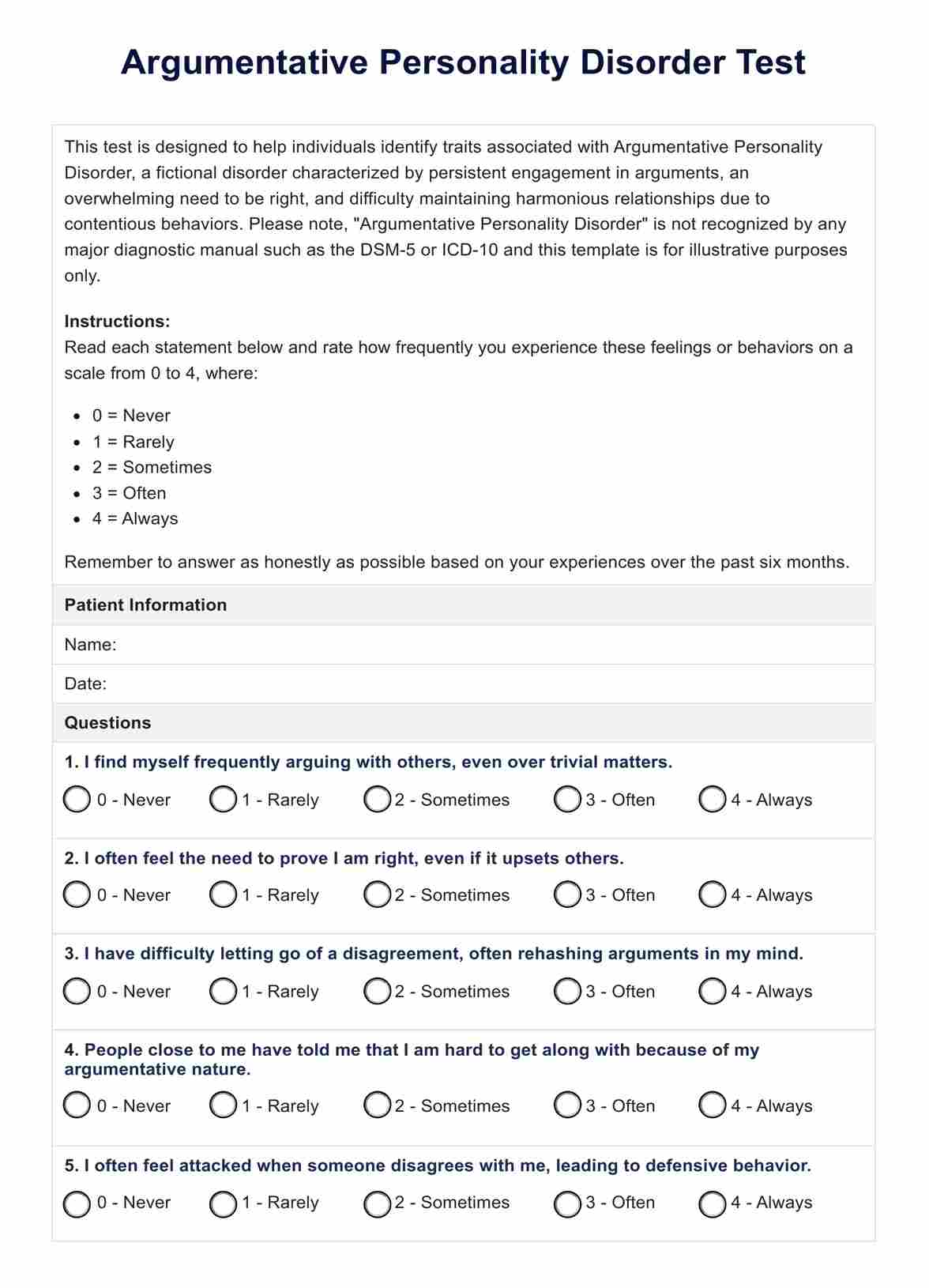Yes, persistent argumentative behavior can sometimes indicate underlying mental health issues, including personality disorders or unresolved emotional conflicts, necessitating a comprehensive evaluation by a mental health professional.

Argumentative Personality Disorder Test
Explore our Argumentative Personality Disorder Test for insights into conflict behaviors and steps towards healthier interpersonal dynamics.
Use Template
Argumentative Personality Disorder Test Template
Commonly asked questions
With appropriate therapy and support, individuals can learn healthier ways of communicating and managing conflicts, significantly reducing argumentative behaviors and improving their quality of life and relationships.
Support can include encouraging the individual to seek professional help, offering empathy and understanding, and practicing constructive communication techniques to build a healthier relationship dynamic.
EHR and practice management software
Get started for free
*No credit card required
Free
$0/usd
Unlimited clients
Telehealth
1GB of storage
Client portal text
Automated billing and online payments











